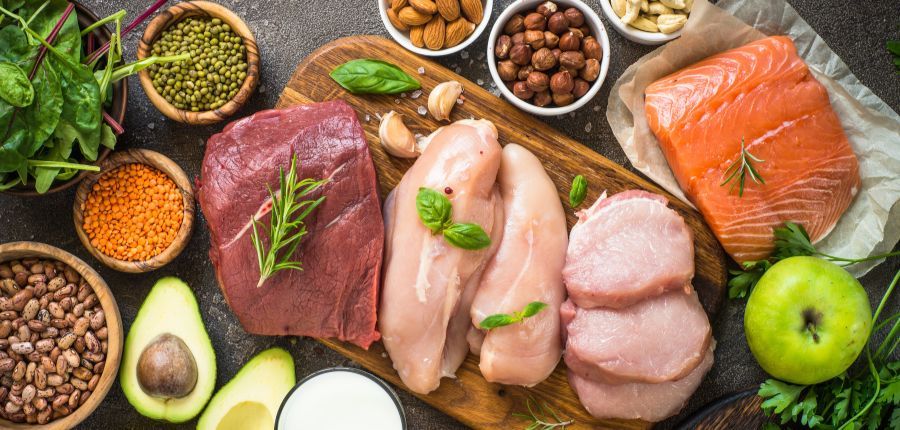Consuming protein is essential since it aids in cellular maintenance and regeneration. It aids in weight reduction, suppresses hunger, enhances bone health, reduces blood pressure, and many other things. However, many myths about protein cause individuals to avoid getting enough of this vital vitamin. We will review the most common myths about protein that you need to stop believing to put your mind at ease and discard the incorrect information you’ve likely heard for years.
More Protein Equals More Strength
Protein is a vital source of the amino acids your body needs to operate properly. Muscles need amino acids for repair, development, and maintenance. This fact leads to a common misconception that eating more protein will lead to faster muscle growth.
Popeye may have bulked up within seconds after downing his spinach, but you can only gain muscle when you combine protein with exercise. If excessive protein intake led to muscle growth, the protein powder and shake industry would dominate the world.
All You Need Is Powder
While we’re on the subject of protein powder, you likely have a giant tub in your home or backpack if you’re a gym goer. Many of us like protein powder since it is a quick and simple way to get our daily dose of protein.
However, it is a fallacy to think it can replace whole-protein foods. Ensure that your body gets all of the macro and micronutrients it needs. You can eat protein-powered foods if you are on the go, so don’t let that stop you.
Excess Protein Leads To Kidney Damage
There is a correlation between kidney disease and protein overconsumption. However, this is true only in the presence of preexisting conditions. If you’re in good health, your kidneys can handle the extra protein without you feeling any ill effects. Remember that your body will need time to acclimate to any dosage changes.
Less Protein Helps You Lose Weight
You now know that gorging yourself on protein-enriched foods isn’t the magic formula that turns you into an Avenger. Nor does reducing your intake help you lose weight.
A common belief among people on a diet is that reducing their protein intake would help them lose weight. Instead, burning extra fat will be more challenging if you restrict your protein consumption or don’t get enough of it.
Fatigue, weakness, a compromised immune system, and other complications may result. Consuming protein may aid in weight loss since it reduces hunger and speeds up the body’s metabolic rate, so finding that appropriate amount somewhere in the middle is key.
The Vegan Struggle
The granddaddy of all protein myths is that a vegetarian or vegan will not consume enough protein. Fish, beef, and eggs are examples of complete proteins since they include all nine of the body’s required amino acids. However, the fact that vegans can’t have it isn’t a huge problem. Vegans may get the protein they need from lentils, legumes, grains, beans, tofu, and soy products, providing a complete protein diet.
Educating you about the common myths about protein that you need to stop believing will keep you from falling into bad habits. We don’t want vegans to worry about not getting enough, nor do we want folks to wonder if their kidneys will unexpectedly burst. Knowing the truth in the back of your will set you free from these misleading misconceptions.
